Author: admin
-
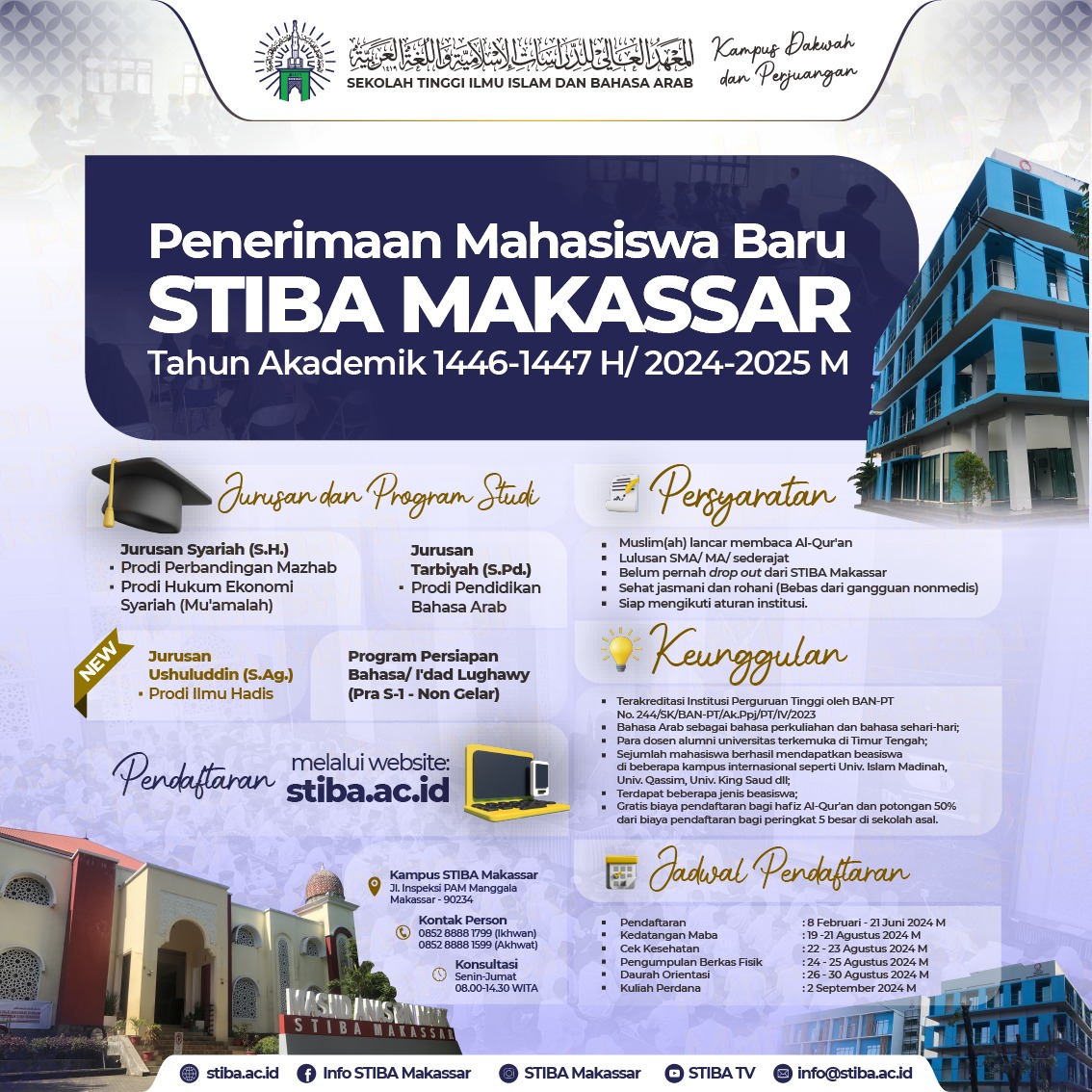
New Student Registration at STIBA Makassar is Now Open
STIBA Makassar is once again opening its doors to prospective new students in the academic year 1446-1447/2024-2025. For those of you with a high enthusiasm for learning Islamic sciences and Arabic language, this is your opportunity. STIBA Makassar offers a variety of majors and study programs that can match your interests. You can choose Comparative
-
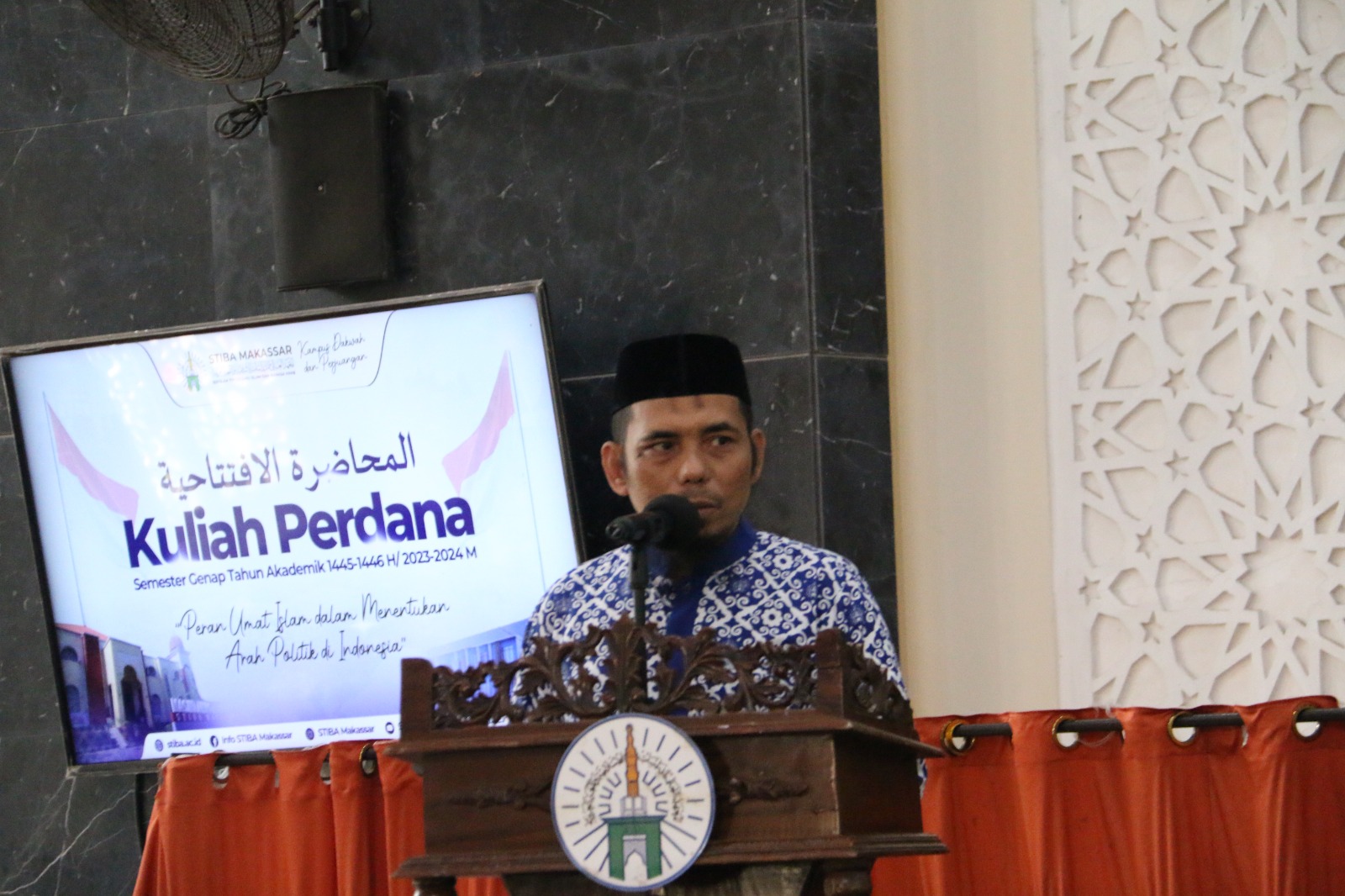
Facing the Elections, Senate Chairman Encourages STIBA Makassar Students to Vote Wisely, Discusses the Leadership Story of Prophet Ibrahim
The Chairman of the Senate of the College of Islamic Sciences and Arabic Language (STIBA) Makassar, Ustaz Muhammad Yusran Anshar, Lc., M.A., Ph.D., opened the inaugural lecture at STIBA Makassar. In his speech, he highlighted a theme that had never been precisely discussed in previous inaugural lectures, which is the “Role of the Muslim Community
-
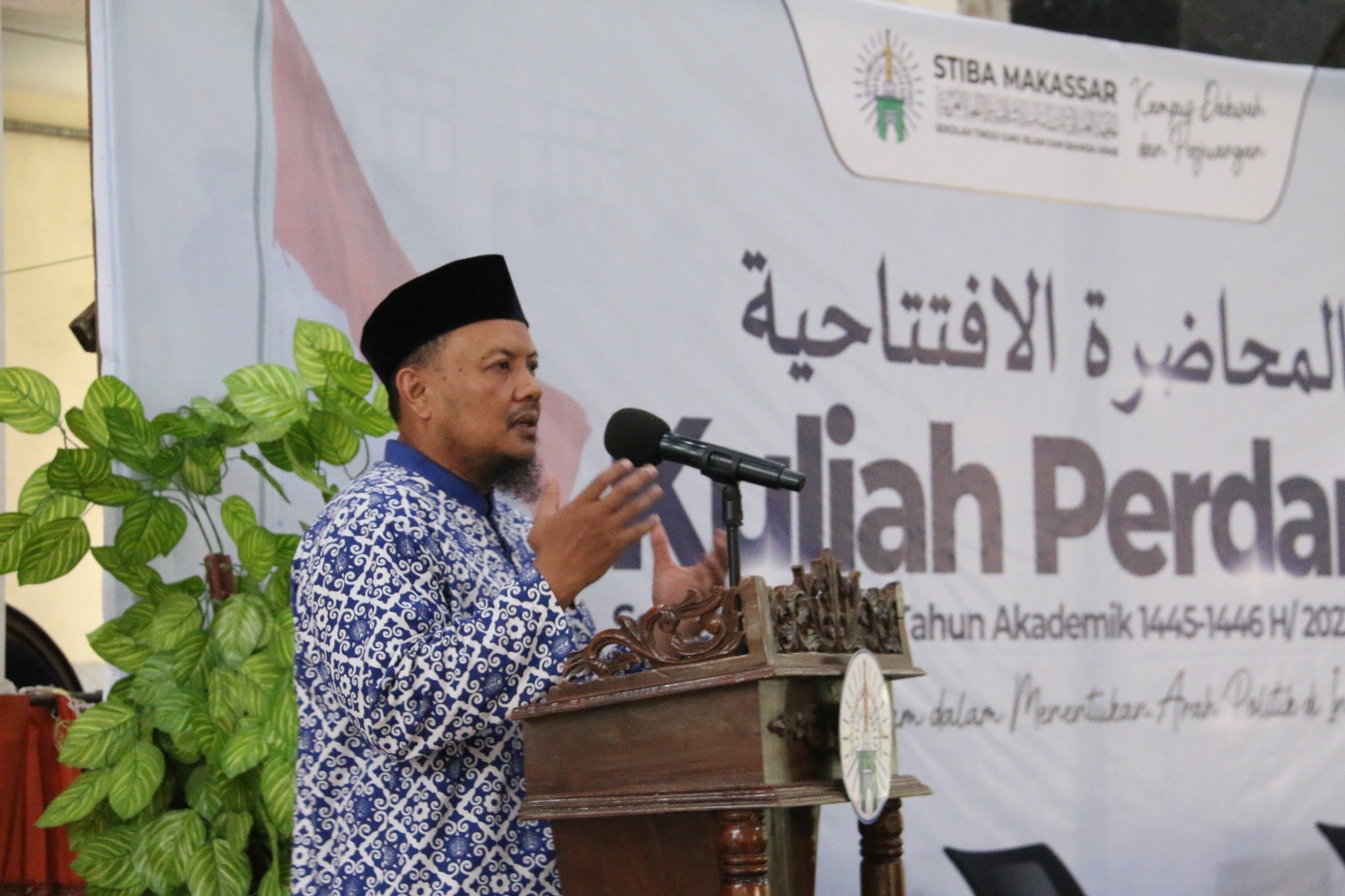
Delivering a Speech in the Inaugural Lecture, Chairman of STIBA Makassar Emphasizes the Importance of Change.
The Chairman of STIBA Makassar, Akhmad Hanafi Dain Yunta, Lc., M.A., Ph.D., delivered a speech during the Inaugural Lecture for the Second Semester of Academic Year 1444—1445 H/2023—2024 M, on Monday (29/01/2024). Ustaz Akhmad stated that this inaugural lecture focuses on the role of the Muslim community in shaping the political direction in Indonesia. It
-
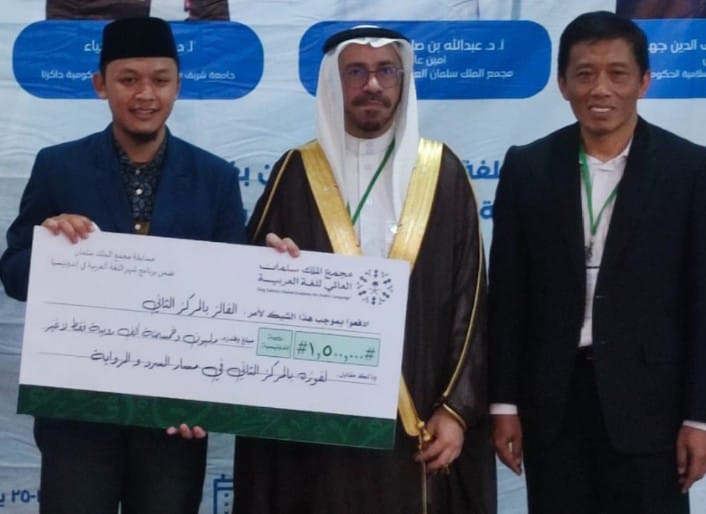
The Only Representative from Eastern Indonesia, STIBA Makassar Achieves Success in the World Arabic Language Month Competition
(STIBA.ac.id) Jakarta – Alfabean Mahdani, a fifth-semester student at STIBA Makassar who also serves as the Chairman of the Student Executive Board (Dema) of STIBA Makassar, successfully secured the second position in the World Arabic Language Month Competition. The event was organized by Majma’ Al Malik Salman lil ‘Alami Li Al-Lughah Al-‘Arabiyyah in collaboration with
-
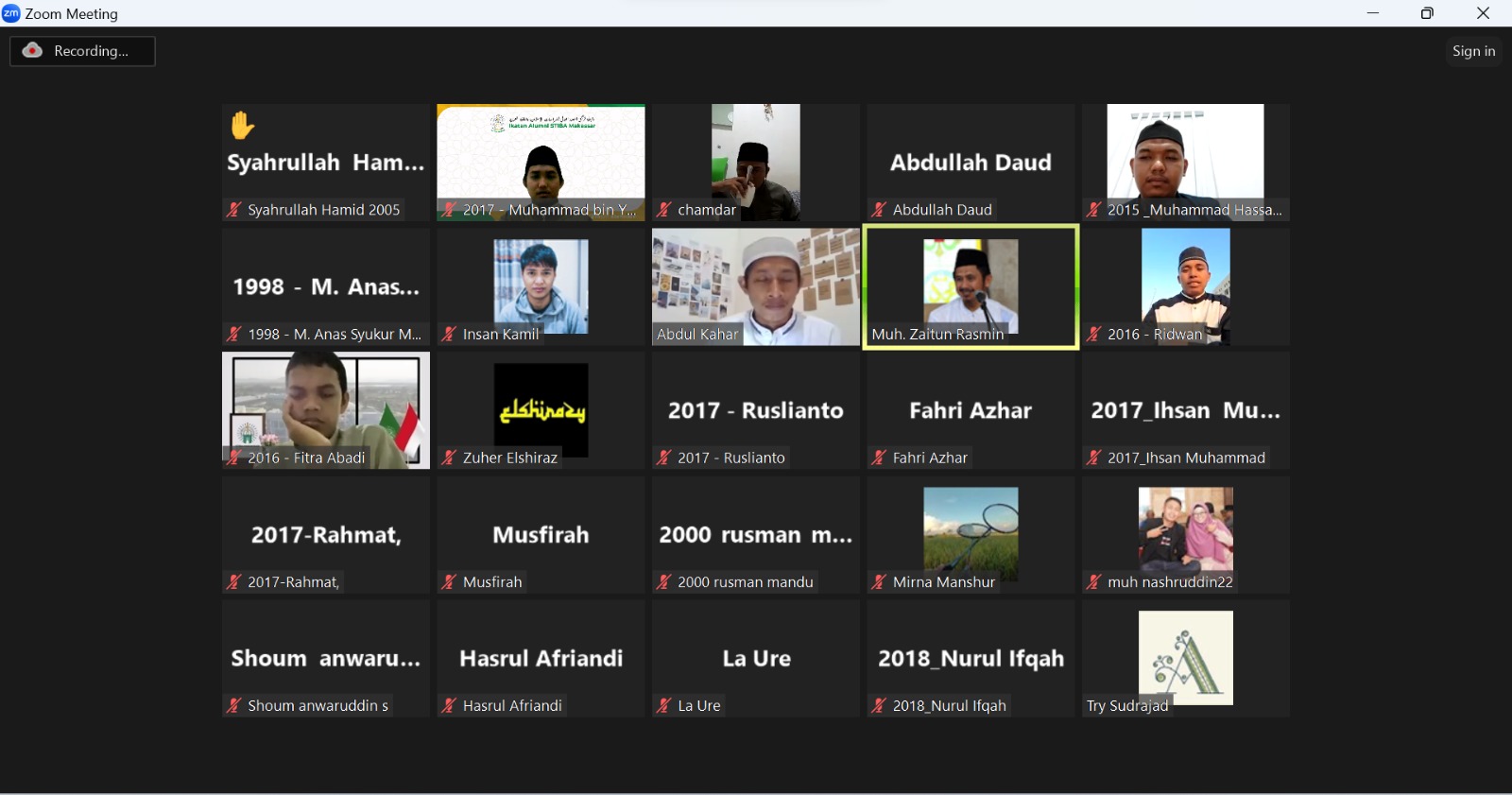
Approaching the General Election, STIBA Makassar Alumni Conduct Scholarly Discussion with Ustaz Zaitun Rasmin
The Alumni of STIBA Makassar are encouraged to be not only successful academically but also enlightening figures in all aspects of life, particularly in religious issues. Faced with the demands of the times that require direction and guidance in matters of faith, each alumnus is urged to continuously update their knowledge before providing enlightenment to
-
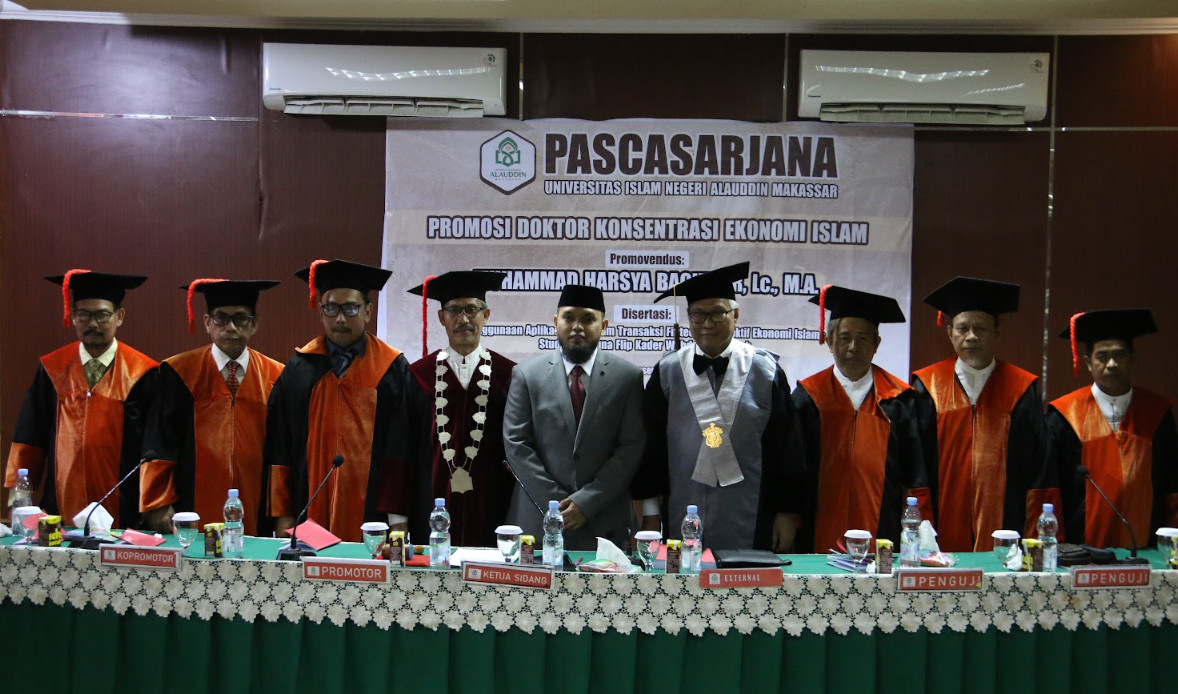
Ustaz Harsya Bachtiar’s Dissertation Unveils the Flip Application: Lecturer Attains Doctorate, the 16th at STIBA Makassar
(STIBA.ac.id) Makassar – Dr. Muhammad Harsya Bachtiar, a lecturer at STIBA Makassar and dai of Wahdah Islamiyah, recently earned his doctoral degree after successfully defending his dissertation in the Doctoral Program with a concentration in Islamic Economics at Alauddin State Islamic University Makassar (UINAM). The doctoral defense took place at the Faculty of Education and
-
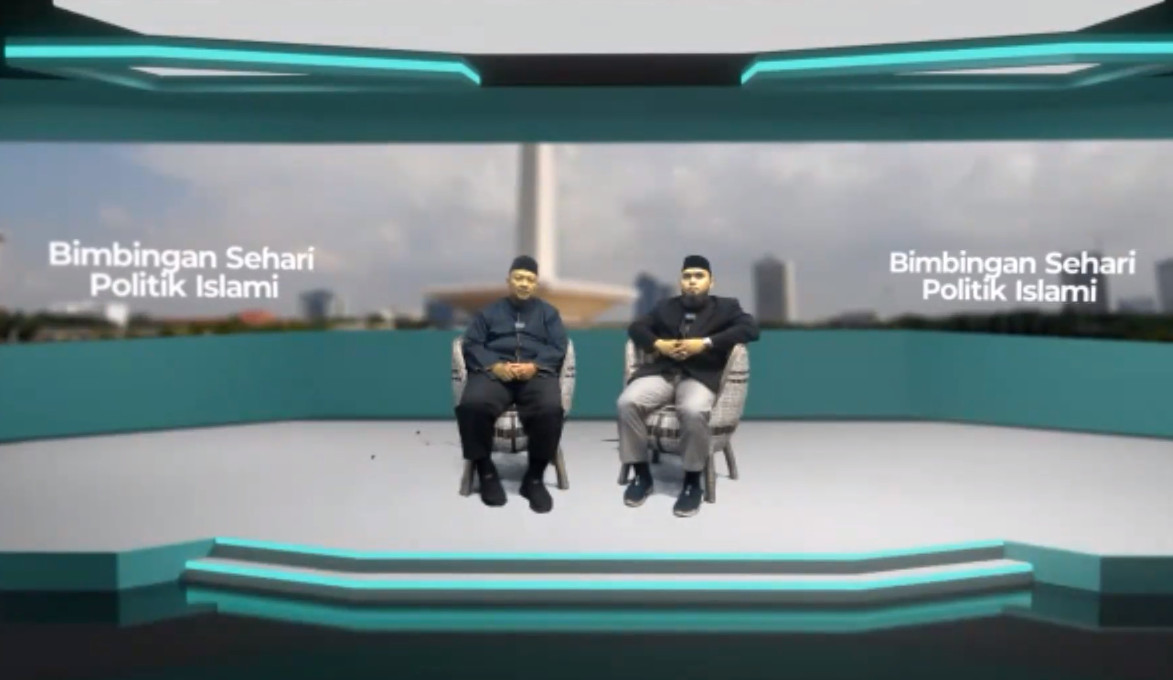
Chairman of STIBA Makassar Explains the Principle of “Adh-Dharar Yuzal” and Its Implementation in the Political Contestation of Presidential Candidate Selection
Ustaz Akhmad Hanafi Dain Yunta, Lc., M.A., Ph.D., emphasizes the importance of guidance for Muslim individuals in determining their actions, typically derived from the Quran, the hadith of the Prophet Muhammad, and the guidance of scholars. Since not everyone can memorize thousands of verses from the Quran and hadith, scholars have formulated principles of fiqh
-
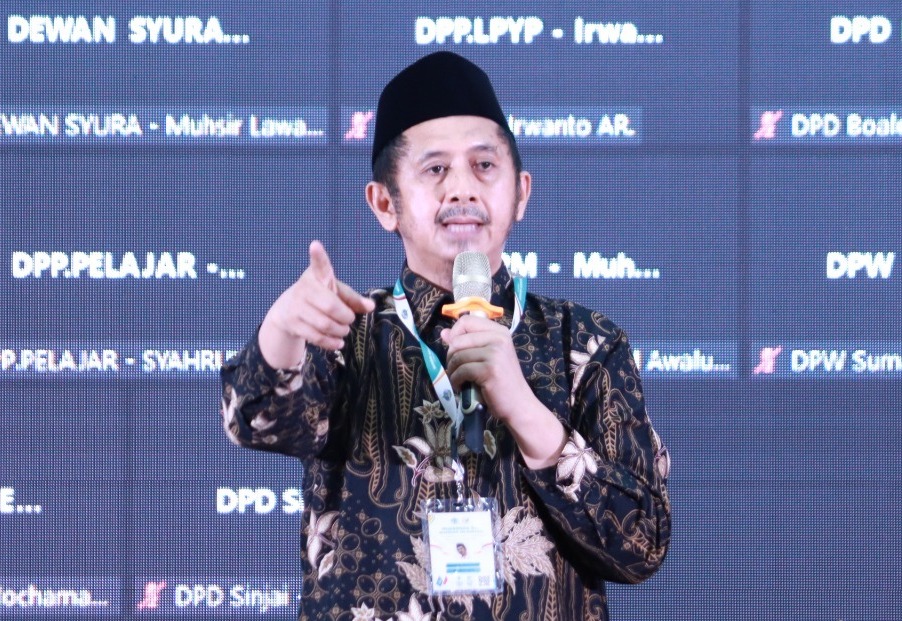
Ustaz Zaitun Rasmin Pushes for the Transformation of STIBA Makassar into an Institute
The Advisory Council of MUI Central, Dr. K.H. Muhammad Zaitun Rasmin, expressed his hope to transform the Sekolah Tinggi Ilmu Islam dan Bahasa Arab (STIBA) Makassar into an institute next year. This step is a positive initiative expected to accelerate the progress of the Wahdah Islamiyah educational institution. The transformation of STIBA Makassar into an
-
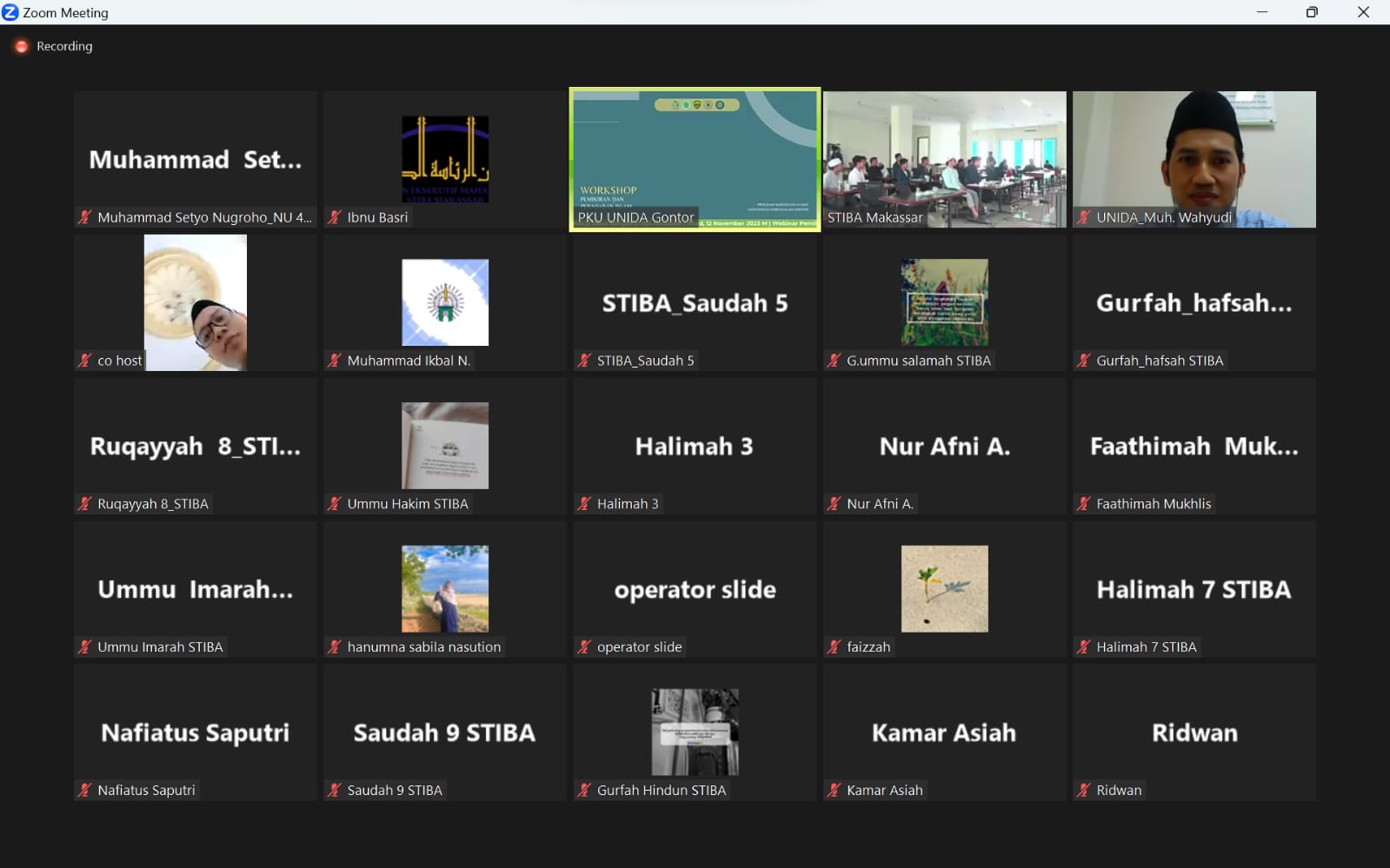
Collaboration between STIBA Makassar and Unida Gontor Holds a Workshop Seminar on Islamic Thought and Civilization
(STIBA.ac.id) Makassar – Collaborating with the Cleric Cadre Program (PKU) of the 17th Generation at Darussalam University (UNIDA) Gontor, STIBA Makassar organized a Workshop Seminar on Islamic Thought and Islamic Civilization on Sunday, November 12, 2023. The event was held in a hybrid format involving five speakers, all from the Cleric Cadre Program from both
-
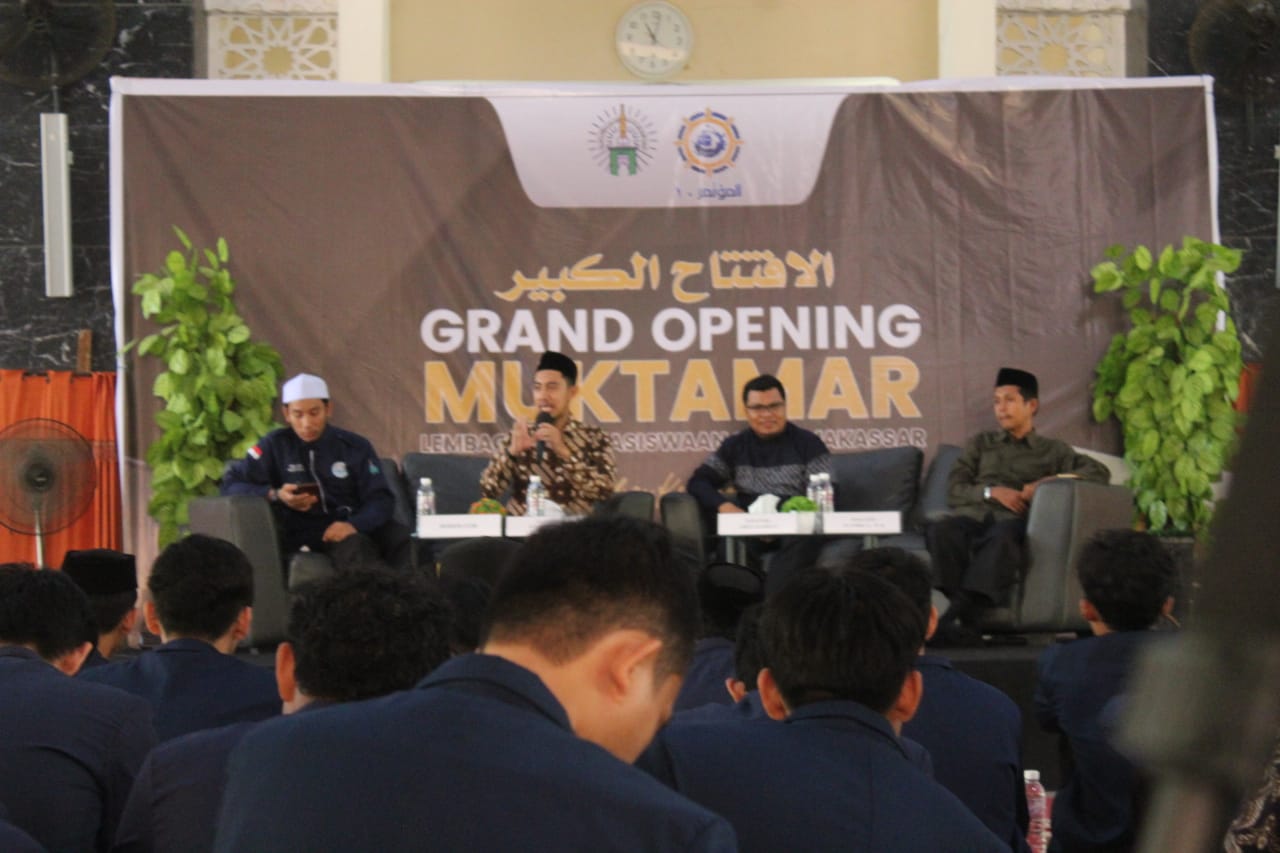
Grand Opening of Muktamar and Student Seminar at STIBA Makassar Discusses Existence in the 5.0 Era
(STIBA.ac.id) Makassar – The Student Affairs Institute of STIBA Makassar held the Grand Opening of Muktamar, combined with a Student Seminar focusing on the theme “The Existence of Student Organizations in the 5.0 Era,” on Saturday (11/11/2023). The event was attended by A.M. Iqbal Parewangi as the keynote speaker, and several speakers such as Abdul